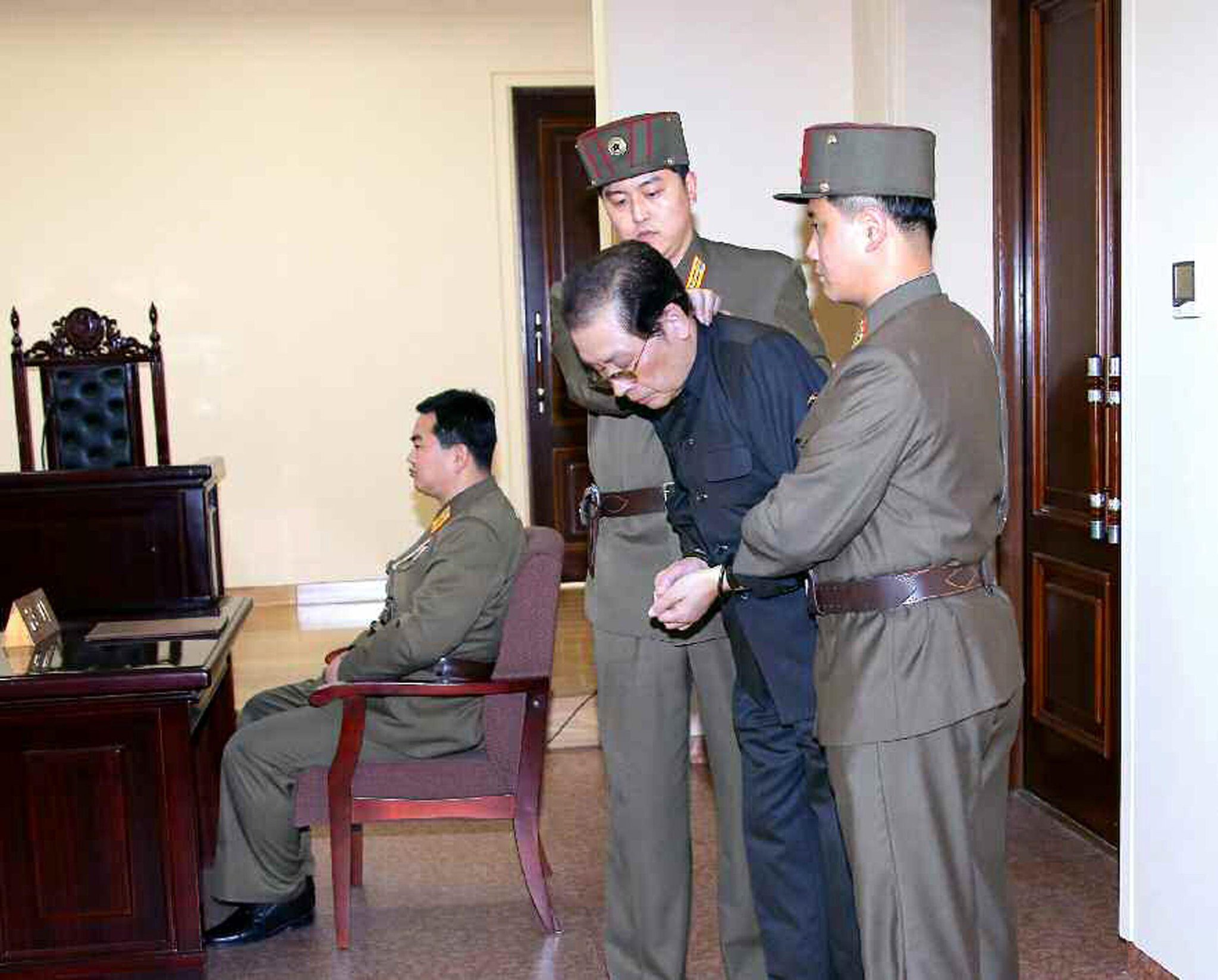North Korea’s Kim Jong-un executed his uncle over lucrative business deals: South Korean intelligence
SEOUL, South Korea – South Korea’s intelligence chief said Monday that Jang Song Thaek, the uncle of the North Korean leader Kim Jong-un who was executed this month, apparently had not plotted a coup as Pyongyang had said, but had fallen victim to intrigue within the country’s elite over lucrative business deals, according to lawmakers in Seoul.
Jang, 67, who was once believed to be the second most powerful man in North Korea, was executed on Dec. 12 on charges of plotting to overthrow his nephew’s government, four days after he was hauled out of a meeting of the ruling Workers’ Party at which he was stripped of all titles. The highly unusual public purge and execution of a member of the North’s ruling family has set off widespread speculation about the possibility of a power struggle within the secretive regime.
During a closed-door meeting Monday of the South Korean National Assembly’s intelligence committee, Nam Jae-joon, director of the National Intelligence Service, disputed Pyongyang’s assertion that Jang had tried to usurp his nephew’s power. Rather, he said, Jang and his associates had provoked the enmity of rivals within the North’s elite by dominating lucrative business deals, such as the sale of North Korean coal to China.
“There had been friction building up among the agencies of power in North Korea over privileges and over the abuse of power by Jang Song Thaek and his associates,” Nam was quoted as saying.
(...)
Nam, according to the lawmakers, said Jang’s rivals had gone to Kim with accusations of corruption on the part of Jang and his circle. When Jang’s associates, perhaps too confident of Jang’s influence with Kim, resisted the top North Korean leader’s order to give up some of their business arrangements, Kim saw it as a challenge to his authority, according to Nam.
“It appears that there is no big problem with Kim Jong Un’s grip on power, because the purge of Jang Song Thaek was not the result of a power struggle,” Nam was quoted as saying.
Still, Nam said, the fact that such behind-the-scenes squabbling had spun out of control, to the point that Kim ordered his own uncle’s execution, raises questions about the regime’s internal unity.
“The fissure within the regime could accelerate if it further loses popular support,” the lawmakers quoted Nam as saying.
Nam did not reveal the sources of his agency’s intelligence, but he said his spies had learned of Jang’s detention as early as mid-November.
Jang was the husband of Kim Kyong Hui, the only sister of Kim’s late father, the longtime North Korean leader Kim Jong Il. Jang appeared to have rapidly expanded his influence since Kim Jong Il suffered a stroke in 2008, and he and his wife were widely seen as caretakers for the family regime as it groomed Kim Jong Un as heir.
Jang’s rising profile coincided with the purges of top generals and the curtailing of the military’s lucrative rights to trade in coal, iron ore and other natural resources, exports of which to China have become the biggest components of North Korean trade with the outside world in recent years.
The official verdict against Jang on Dec. 12 hinted at the business deals in which Jang and his associates were involved, saying that he had “instructed his stooges to sell coal and other precious underground resources at random.”
Nam told the committee Monday that Kim Jong Un’s aunt had retained her position in the North Korean hierarchy, while the purge of Jang’s other associates continued. But he denied news reports in South Korea and Japan that some of Jang’s associates were seeking political asylum in Seoul and Beijing after fleeing the purge at home.
Nam pointed to Vice Marshal Choe Ryong Hae, the top political officer in the North Korean People’s Army, and Kim Won Hong, the head of the North’s secret police and its intelligence chief, as the regime’s new rising figures since Jang’s execution, according to the two lawmakers
(...)



